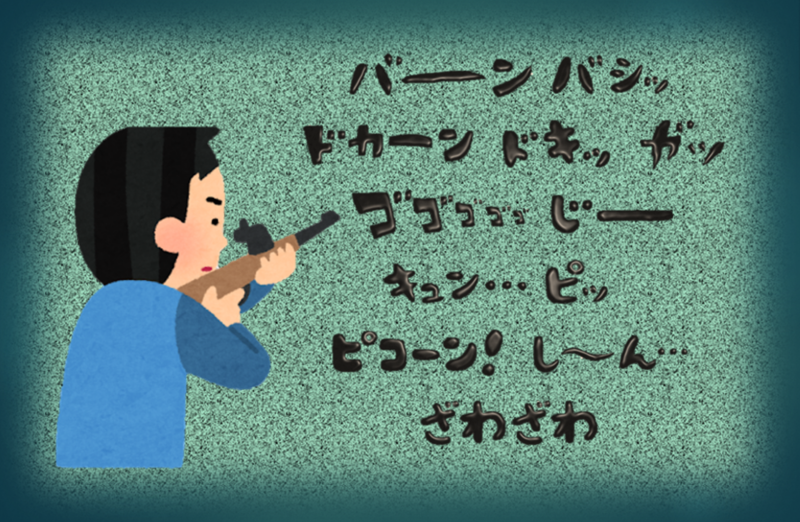以下大雑把な英語版です。
知ってる内容を英語ルートで理解。洋画で字幕を読んで英語を聞くように。
日本語の内容はこちらから
↓ ↓ ↓
https://worldlife.jp/archives/10983
Onomatopoeic expressions in English and Japanese are very interesting because of their great difference.
In English, to judge from the examples I collected, onomatopoeic words primarily suggest the acoustic, how the actual sounds or noises are perceived as physical impressions. On the other hand, Japanese counterparts express the perceiver’s experience as linguistic expressions, making them sound like other authentic linguistic words and phrases. The distance between onomatopoeic sound expressions and non-onomatopoeic words is greater in English than in Japanese.
Here I want to refer to a Japanese scholar’s research years ago. Dr.Tsunoda demonstrates that,
Japanese people are almost unique in the world in that they process a greater variety of physical sounds in the left brain hemisphere, which is often referred to as “linguistic brain.” English speaking people, on the other hand, process in the right hemisphere what Japanese brain process in the left hemisphere, for example, independent vowels, natural sounds such as the sound of streams or of winds, emotional human sounds such as sobbing or laughing.
If what he says is true, the impression I got reading onomatopoeic expressions both in Japanese and English versions of the same cartoon, that onomatopoeic expressions in Japanese strike you as words while those in English as transliteration of aural impressions by alphabets will be to the point.
Be that as it may, who knows the day may come when, the neuroscience having progressed enough, we can have an exact picture concerning how either brain processes acoustic information.
私立学校に英語教師として勤務中、40代半ばに差し掛かったころ、荒れたクラスを立て直す策として、生徒に公言して英検1級に挑戦することを思い立つ。同様の挑戦を繰り返し、退職までに英検一級(検定連合会長賞)、TOEIC満点、国連英検SA級、フランス語一級、スペイン語一級(文科大臣賞)、ドイツ語一級、放送大学大学院修士号などの成果を得る。
アメリカで生徒への対応法を学ぶ為に研修(地銀の助成金)。最新の心理学に触れた。4都県での全発表、勤務校での教員への研修を英語で行う。現在も特別選抜クラスの授業を全て英語で行っている。「どうやって単語を覚えればいいですか?」という良くある質問に答える為、印欧祖語からの派生に基づく「生徒には見せたくない語源英単語集」を執筆中。完成間近。常日頃洋書の読破で様々な思考にふれているが、そうして得た発想の一つを生かして書いた論文がコロナ対策論文として最近入賞。賞品の牛肉に舌鼓をうっている。元英検面接委員


